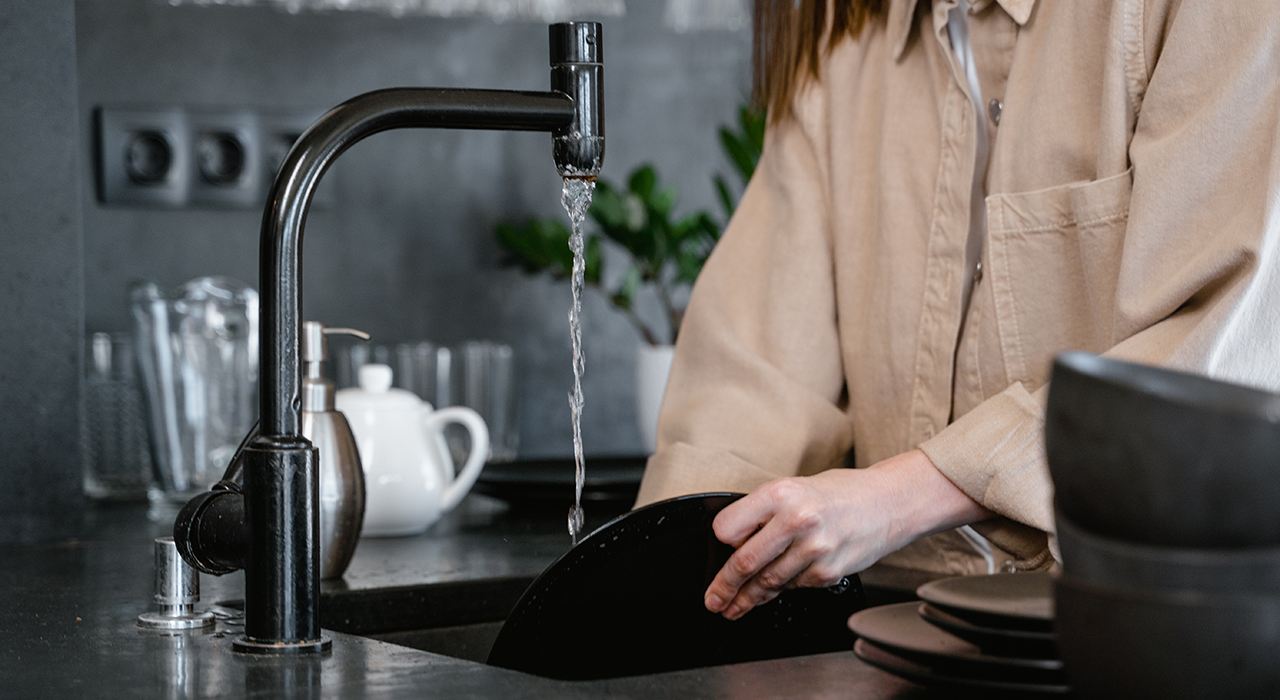Mindfulness—the golden buzz word in every conversation about mental health in today’s fast-paced, “hustle-mode” world. You’ve probably heard it, read about it, or even par-taken in some of its more formal practices, like meditation and deep breathing exercises.
But, what if we told you that there are small, informal ways to practise mindfulness that, when used regularly throughout your day, can be just as beneficial to your mental wellbeing?
Plus, you don’t need to carve out a chunk of time in your day to engage with these exercises, which means you can reap the benefits of mindfulness even when you’re busy.
What is informal mindfulness?
Informal mindfulness is all about consistently weaving moments of mindfulness into your routine. It centres around training your brain to pull focus and be present while performing everyday tasks like eating, brushing your teeth or washing the dishes.
Mindfulness is a state of mind that centres around three main ideas:
- Being present
- Acting with intention
- Approaching situations with an engaged attitude
In a world that’s so busy, however, it’s easy to autopilot through our days or always be looking into the future towards what we need to do next.
It’s here, informal mindfulness exercises can be used to reach a mindful mindset more often throughout your day.
Informal mindfulness vs formal mindfulness
Informal and formal mindfulness practice are different in practice, but complement each other well.
Formal exercises, like mindfulness meditation and breathwork, are great cornerstone habits that give your mind and body dedicated time to tune in, decompress and engage with the present.
Although beneficial for many people, there are limitations to these formal practices. First, the benefits of these exercises rely heavily on consistency. For many of us, setting aside time every day to fully engage in these formal exercises isn’t achievable.
Second, there is a high likelihood that we’ll slip back into a disengaged state as soon as the focused time for the exercise is finished—limiting the benefits of these practices to only a tiny portion of our days.
Third, these formal mindfulness practices may not feel comfortable or beneficial to everyone!
In these cases, informal mindfulness exercises can be a great alternative (or supplement) to formal mindfulness practice. It's simple to incorporate into everyday life, which makes consistent practice more achievable and doesn't feel as much of a demand during busy times. When we engage in informal mindfulness, we gain some incredible benefits.
The benefits of informal mindfulness
Improves adaptability during challenges
People who consistently engage with informal mindfulness practices have been found to be more adaptable and resilient in the face of change—AKA, they have better psychological flexibility.
Someone who has high psychological flexibility, is able to stay present, engaged and adaptable when confronted with change; despite maybe experiencing unpleasant thoughts, feelings or physical sensations.
By incorporating informal mindfulness into your every day routine, you’re strengthening your brain’s ability to stay engaged and in the present moment. By doing this, you ensure these mindfulness skills are more readily transferable to situations outside of your routine (even the unexpected or unpleasant ones).
Lowers anxiety
It’s easy to act on auto-pilot while we constantly think about what’s next. “What do I need to get done today? Have I finished that task? How am I going to get that done when I have this and this to do?”
What we don’t realise, however, is how much stress and anxiety we allow to build up when we get into this train of thought. What may seem like “proactive planning”, might actually just be a stress cycle—one with some detrimental long-term health consequences.
Informal mindful awareness is a great way to turn off these cyclical “what’s next?” thoughts, and pull our brain’s focus back onto the present. By doing so, we stop unnecessary stress and anxiety from building tension in our thoughts and bodies. Over time, this has been found to lower stress and anxiety, while increasing feelings of satisfaction and wellbeing.
Increases the likelihood of long-term mindfulness practices
Using routine activities, like performing chores, as a vehicle to practise mindfulness has been linked to developing a greater state of mindfulness in the long term. By incorporating mindfulness into these everyday tasks, you’re more likely to stay consistent.
This consistency will allow you to take more notice of the benefits achievable through practising mindfulness. These benefits, (for example, more frequent experiences of positive feelings), are more likely to motivate you to consistently engage with mindfulness practices in the long-term.
From here, the benefits of both informal and formal mindfulness practices can begin to transform your state of mind.
How to engage in daily informal mindfulness
The morning body scanAlthough tempting, reaching for your phone the minute you wake up is actually doing yourself a disservice. It forces your brain to immediately switch on and become alert, increasing your body’s stress response from the get-go. Instead, you can incorporate a morning body scan to ease your brain and body into the day ahead. A body scan is all about allowing yourself to completely focus on each individual part of your body, one by one. As you’re focusing, you’re taking note of every sensation your body is experiencing. As you breathe, you begin to let go and ease any tension that you find throughout your scan. By doing this first thing in the morning, you’ll begin your day more in-tune with your body and with your thoughts more centred. |
'Mindful eating'Choose one meal a day where you can sit-down and really take your time eating. The goal here is not to rush through your meal, but rather take stock of your sensory experiences. What’s the texture like? What flavours are you experiencing? What can you smell? By taking your time and really sitting in the present, you’ll find that eating that mindful meal actually gives your body time to relax, refuel and enjoy the act of eating. |
The mindful walkIn a world where every type of media is at our fingertips, it’s easy to always have something stimulating to entertain us when we need to go somewhere. Although enjoyable, this habit can actually cause us to disengage even further from our surroundings. Once a day, try going for a ‘mindful walk’ or doing some mindful movement. This informal mindfulness exercise is all about bringing you back to the world around you while you get from point A to point B. While walking, put your phone away and really try to focus on your immediate surroundings. Focus on your breath, your footsteps, the feeling of the sun on your face, or the colour of the leaves. By doing so, you allow your brain to be more in the present and to relax into the commute. |
Engage with mindful listeningA great and extremely important way to incorporate informal mindfulness into your day is by practising mindful listening. Conversations with your friends, coworkers or family are a great opportunity to switch off from external stimuli and to really become present in the moment. Mindful listening is an attentive and engaged way of participating in conversations. By sitting quietly, listening to and observing both verbal and non-verbal messages, your brain is able to lock into the conversation, and participate in a more fulfilling way. |
Sensory isolation while doing choresA great way to pull your attention back into the present is by taking notice of all your senses while performing chores. Although mundane activities, performing chores is a great time to reconnect with your body and quiet the mind. Ask yourself questions like:
Focusing on your sensory experiences will help guide your thoughts to the immediate present, and strengthen your mind body connection. |
Informal mindfulness practices are a great way to slowly and naturally incorporate mindfulness into your everyday routine. By doing so, your ability to pull focus and stay present will improve, while your experiences of detachment, anxiety and stress will decrease.
Informal mindfulness is also a great way to work towards incorporating more formal mindfulness exercises into your routine. Incorporating mindfulness through exercises like mindful breathing and meditation practice offer amazing benefits, while providing you with dedicated time to switch off from the outside world, and tune in to how you’re doing internally.
Just like we train different muscles to build physical fitness, we can practise a range of skills to build mental fitness and support our ability to thrive. Learn more about the Smiling Mind Mental Fitness Model.










.jpg)




